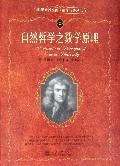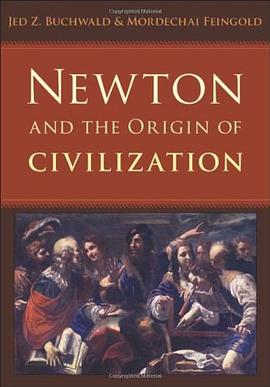自然哲学之数学原理 豆瓣
The Principia: Mathematical Principles of Natural Philosophy
作者:
(英)牛顿
译者:
王克迪
北京大学出版社
2006
- 1
在科学史上,《自然哲学之数学原理》是经典力学的第一部经典著作,划时代的巨著,也是人类掌握的第一个完整的科学的宇宙论和科学理论体系,其影响所及,遍布经典自然科学的所有领域,并在其后300年里一再取得丰硕成果。
就人类文明史而言,它成就了英国工业革命,在法国诱发了启蒙运动和大革命,在社会生产力和基本社会制度两方面都有直接而丰富的成果。迄今为止,还没有第二个重要的科学和学术理论,取得过如此之大的成就和影响。 从科学研究内部来看,《自然哲学之数学原理》示范了一种现代科学理论体系的样板,包括理论体系的结构、研究方法和研究态度、如何处理人与自然的关系等多方面内容。
《自然哲学之数学原理》达到的理论高度是前所未有的,其后也不多见。爱因斯坦说:“至今还没有可能用一个同样无所不包的统一概念,来替代牛顿的关于宇宙的统一概念。而要是没有牛顿的明晰的体系,我们到现在为止所取得的收获就会成为不可能。”
内容涉及天文、物理、生物、心理、政治、经济、法律与军事等领域。这些领域是过运河、现在和将来人类认识世界与发行世界必然从事的、关系人类命运与前途的事业。
就人类文明史而言,它成就了英国工业革命,在法国诱发了启蒙运动和大革命,在社会生产力和基本社会制度两方面都有直接而丰富的成果。迄今为止,还没有第二个重要的科学和学术理论,取得过如此之大的成就和影响。 从科学研究内部来看,《自然哲学之数学原理》示范了一种现代科学理论体系的样板,包括理论体系的结构、研究方法和研究态度、如何处理人与自然的关系等多方面内容。
《自然哲学之数学原理》达到的理论高度是前所未有的,其后也不多见。爱因斯坦说:“至今还没有可能用一个同样无所不包的统一概念,来替代牛顿的关于宇宙的统一概念。而要是没有牛顿的明晰的体系,我们到现在为止所取得的收获就会成为不可能。”
内容涉及天文、物理、生物、心理、政治、经济、法律与军事等领域。这些领域是过运河、现在和将来人类认识世界与发行世界必然从事的、关系人类命运与前途的事业。

